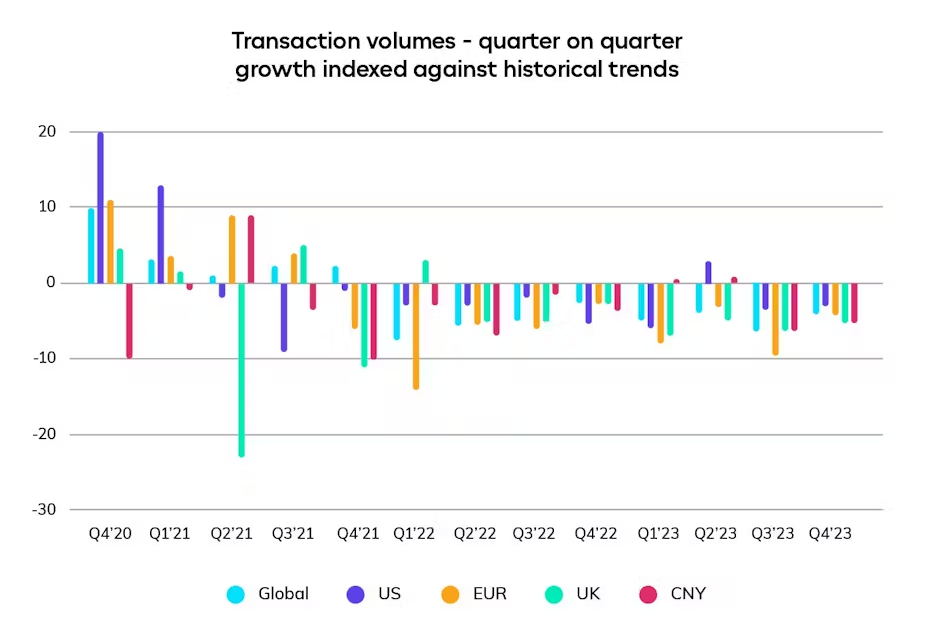In his recent IndustryWeek article, James Stirk, CEO of Tradeshift, explains how global supply chains are facing renewed disruptions due to the ongoing conflicts in the Middle East and Ukraine. Just when there was a glimpse of hope in late 2023 with a spike in trade activity, new geopolitical tensions have thrown a wrench in the works.
The fourth quarter of 2023 saw a surprising increase in orders, hinting at a potential recovery. But missile attacks on ships in the Red Sea have created fresh delays and bottlenecks, reminding us of how vulnerable our supply chains still are. This isn’t just bad luck—it’s a sign of deeper, systemic issues that we can’t ignore.
To tackle these challenges, Stirk suggests that supply chains need to focus on being resilient, agile, and sustainable. This means improving visibility, building strong partnerships with suppliers, diversifying where we get our products, and using automation and AI to spot and address problems early.
However, Stirk also points out that while AI and automation are great tools, their effectiveness depends on having good, reliable data. Businesses need to clean up and digitize their data to really make the most of these technologies.
In the end, Stirk urges businesses and governments to act fast. By embracing automation, encouraging nearshoring, and implementing smart policies, we can build supply chains that are ready to handle the next big challenge.
Read Stirk’s original IndustryWeek post here:
Contact Us








Follow Us